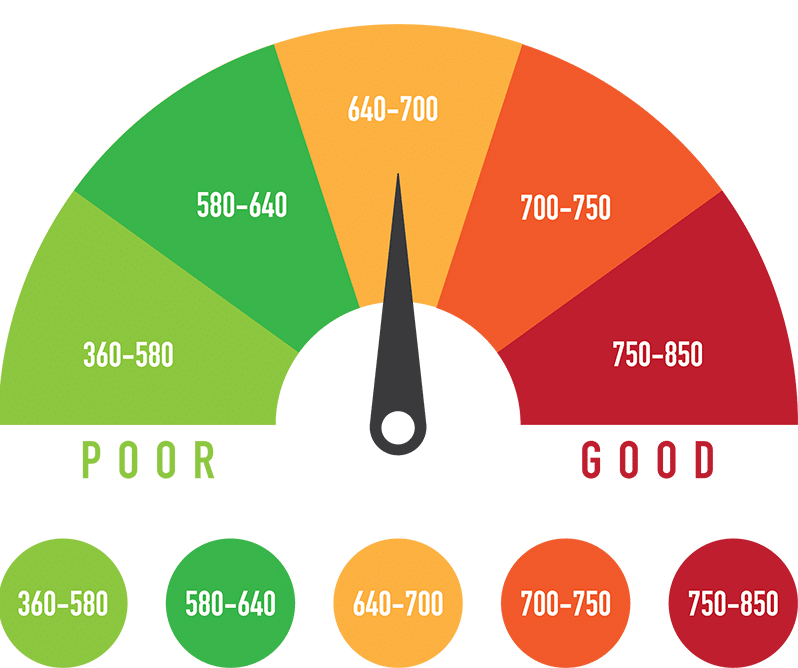 A credit score is a 3-digit number that is used to determine your creditworthiness. Currently, more and more people depend on credit to make purchases. Even some businesses which are not in the credit industry are making good credit scores part of the requirement for services and products.
A credit score is a 3-digit number that is used to determine your creditworthiness. Currently, more and more people depend on credit to make purchases. Even some businesses which are not in the credit industry are making good credit scores part of the requirement for services and products.
Simply put, credit scores are intertwined with almost every financial decision that you make. With this in mind, here are the reasons you should worry about your credit score.
-
Your Score Determines the Rates you Get on Loans
Borrowing is part of financial life. Whether you are buying a house or getting a new car, you will most likely head to a bank for a loan. To determine how much you qualify for and at what terms, one of the factors that will come into consideration is your credit score.
The most widely used model is the FICO Score. It awards points between 300 and 850 range. Lower scores indicate a high probability of defaulting and bad debt management, hence attract high rates on loans; while high scores indicate high creditworthiness and will get you better rates from lenders.
For example, at the current rates, a score of 800 attracts an APR of 4.785% on a $ 5,000 auto loan for a new car payable in 60 months. This comes down to $ 94 in monthly payments and $ 632 in total interest.
If the score drops to 550 for the same term, the rate increases to 17.221%, at $ 125 monthly payment. This translates to $ 2,491 in total interest which is an increase of $ 1,860 from the initial score in our example. Here’s the information at a glance:
| Fico Score | Principal Amount
(auto loan-new car) |
Monthly Payment | Total Interest
(in 60 months) |
| 800 | $ 5000 | $ 94 | $ 632 |
| 550 | $ 5000 | $ 125 | $ 2491 |
| Difference | $ 31 | $ 1859 |
The trend is the same across all credit facilities. This includes mortgages whose difference can run into tens of thousands of dollars. To know exactly how you score compares or affects your rates, run your preferred line of credit through online loan calculators.
-
Your Score can Determine if a Landlord Rents to You
It’s easier to think that you can fall back to renting if your low credit score denies you a mortgage or gets you one at a bad rate, but you could be wrong. Landlords are increasingly using credit scores to determine the eligibility of tenants.
Although it’s not a legal requirement, landlords are within their right since a lease can be viewed as a loan. As such, the only way of determining your willingness to pay off what you owe at the end of the lease term is by checking your creditworthiness.
-
Your Score Can affect Job Prospects
Hiring process continues to be stringent with every waking moment. Many employers now include credit checks as part of the job qualification process. A prospective employer can use your credit report to determine how suitable you will be to the company.
High unpaid debts point to bad debt management. This could signal future mismanagement of company funds and untimely requests for salary increments. Your credit score can also come into question when going for promotion; this is much so when the position is managerial or financial-related.
-
Your Score can Affect Ability to Establish Utility Services
Companies that offer utility services treat your bills as credit facilities. The argument is that you borrow their service for a month and settle at the end of the loan term. What best way to determine your willingness to pay other than checking your previous debt records?
All this they do by going through your credit report and a bad score will stick out like a sore thumb. This practice runs along with all utility companies such as cable, telephone, cell phone, and definitely water and electricity.
Wrap Up
Your credit score is a direct reflection of your willingness and ability to settle debts. As such, it can be used to determine the amount and interest rate payable on any various forms of credit; from a credit card or personal/business loan to a car loan or mortgage.
It can also be used by employers to deny you opportunities and by companies to approve you for utilities. Similarly, it can affect where you live by influencing the leasing options available to you. Simply put, your credit score is a valid cause for worry.






